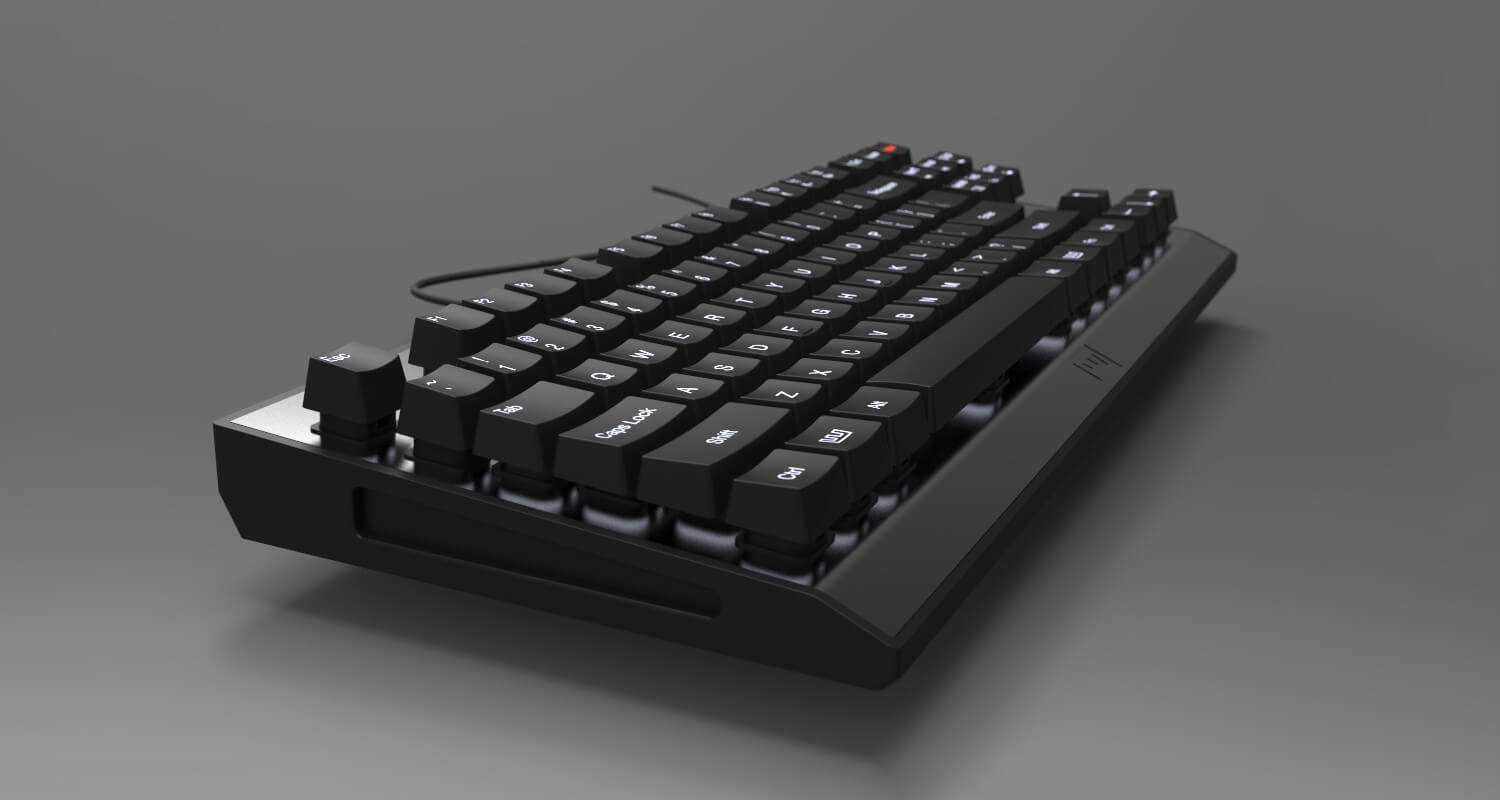If you consider yourself a PC gaming enthusiast, you've probably selected every component of your build carefully, including your peripherals. Whether you're a fan of slower-paced RPGs like the Witcher 3 or fast-paced first-person shooters, you undoubtedly understand the importance of a solid keyboard.
High-quality, clicky mechanical switches, remappable keys, and – of course – fancy RGB lighting can make your gaming experience all the more satisfying. However, throughout my many years of PC gaming, I've always had one major gripe with using keyboards as a controller: variable movement, or more accurately, the lack of variable movement.
To elaborate, if you've played games on a modern console, you're probably aware that you can precisely control your character's speed by merely moving your controller's joystick less than its full range of movement.
In some games, this does little more than add to your immersion, but in other games (such as Skyrim, Fallout 4 or Splinter Cell) having precise control over your character's speed is critical for stealth sections or keeping up with NPCs.
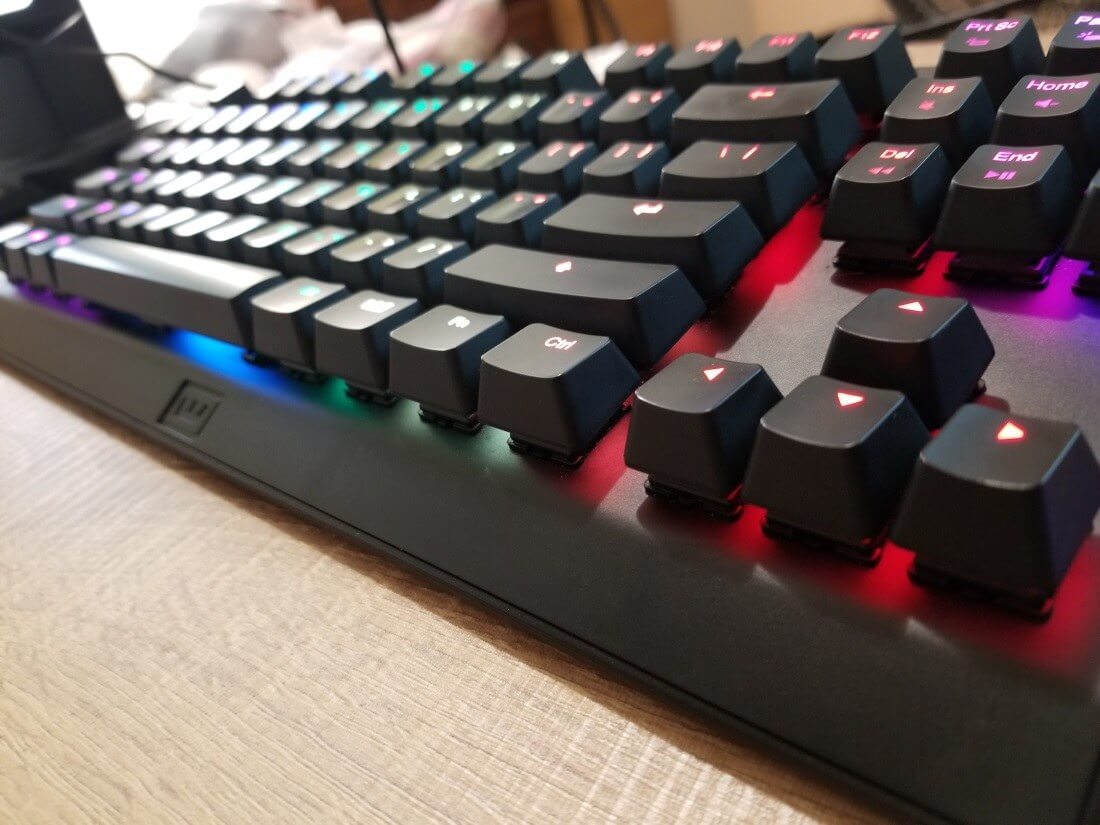
Unfortunately for PC players, we've never really had that level of control. Most games force us to either walk at a painfully slow pace or break into a full jog. We don't tend to have access to any of the "middle" speeds. I can't tell you how many times I've alerted an entire Bandit camp in Skyrim during a would-be stealth infiltration because of this.
The obvious solution to this dilemma is to plug in a controller, but that's far from ideal. By opting to avoid the use of a keyboard and mouse, you lose the many benefits they offer, such as keybinding customization and (arguably) superior aiming accuracy.
That's where the Wooting one comes in.
What is the Wooting one?
Successfully funded via Kickstarter back in 2016, the Wooting one (yes, the lack of capitalization is intentional) is, to my knowledge, the world's first true tenkeyless, analog mechanical keyboard.
It features pressure-sensitive keys that are specifically designed to give PC gamers the same benefits console gamers have access to. You can move at any speed you'd like, which is particularly useful for racing games, first-person shooters and stealth titles.
...the Wooting one has received numerous firmware and software updates over time that have improved its functionality and added new features.
As of writing, the keyboard comes with its own customization software (appropriately named "Wootility") and per-key RGB lighting with customizable lighting patterns. Furthermore, the Wooting one has received numerous firmware and software updates over time that have improved its functionality and added new features.
As lovely as all of that sounds, though, the device's actual functionality is what matters the most. To determine how the one performs, I decided to pick one up to see for myself.
Analog functionality
So, three months after my initial purchase date, does the Wooting one deliver on its promise of console-like movement for PC titles? Well, yes and no.
Prior to writing this piece, I tested out a wide variety of games. I tried competitive shooters like Overwatch and Counter-Strike: Global Offensive, as well as singleplayer titles like The Witcher 3 and Metro: Last Light. While I don't play many racing games – which Wooting's founder Calder Limmen tells me are ideal for the Wooting one – I also decided to test Grand Theft Auto V's driving.
The overall results of my tests were mixed.

On the one hand, I found that shooters like Fortnite, Overwatch, CS: GO, and Metro: Last Light all performed flawlessly with the Wooting. In-game movement speed adjustments were smooth and precise, much like they would be if I were using a traditional joystick. The joy I feel after slowly creeping around a corner to pop off a headshot cannot be overstated.
Grand Theft Auto V's driving also handled quite well, which was a breath of fresh air given the issues I usually have when it comes to managing vehicle speeds in PC titles. Turning and accelerating was smooth and precise, though I'll admit it wasn't entirely on par with the game's controls on a console.
On the other hand, when I attempted to try out a few of my favorite single player RPGs, such as the Witcher 3, Skyrim, and Fallout 4, the keyboard's effectiveness quickly diminished. Speed adjustments in these games either didn't work at all or worked only intermittently. As I spend the vast majority of my gaming hours in titles like this, I was disappointed, to say the least.
However, Calder said these problems mostly come down to a lack of in-game support for the Wooting one's technology. "It's the major drawback at this moment, not many games have the right type of support or really embrace the option," Calder told me. "But we're getting there. We have the developer portal coming out, and we'll mainly be focused on [indie game] developers."
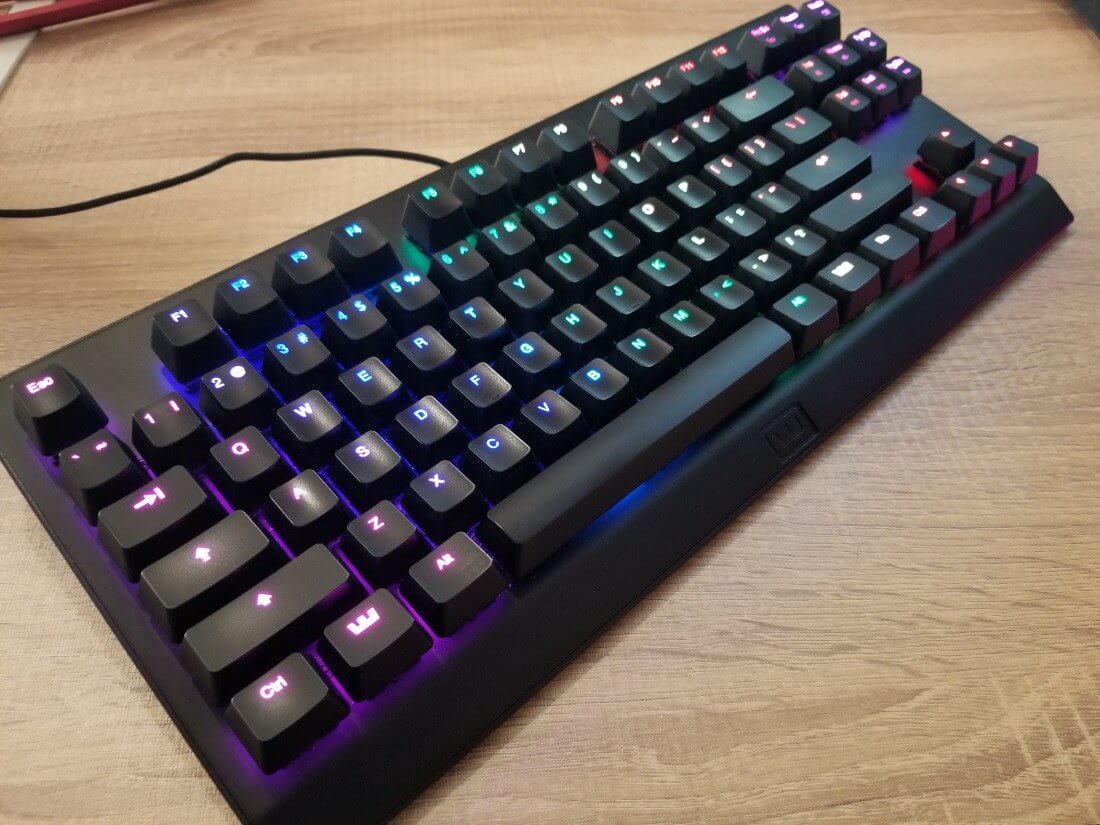
That certainly sounds like an excellent idea, but for the foreseeable future, it seems we'll still need to constantly toggle between walking and running to keep up with certain inconsiderate NPCs in these games.
Before moving on, there's one more feature I should mention.
The Wooting one features Double Keystroke (D.K.S.) technology, which essentially allows you to create two separate key actuation points for a single keystroke. This feature is particularly useful for MOBA's or MMOs where spell targeting accuracy is critical.
Rather than needing to tap a hotkey twice (once to aim a spell or ability, again to unleash it), you can hold it down ever-so-slightly to begin targeting and press the key the rest of the way to finish casting. Though I didn't test the feature extensively myself, Wooting informed me that D.K.S. would also work quite well in games like Fortnite, due to the way the title's building construction system works.
Build quality and overall feel
The Wooting one feels incredibly sturdy, with an aluminum top plate and firm plastic backing. While I don't make a habit of dropping or otherwise damaging my keyboards, I feel like this device could withstand quite a bit of punishment.
By default, the keyboard ships with either Linear55 "Red" or Clicky55 "Blue" switches, which are intended to simulate the feel of Cherry's popular similarly-named switches. Additionally, both switch types are rated for 100,000,000 clicks, so they should last you for quite some time.
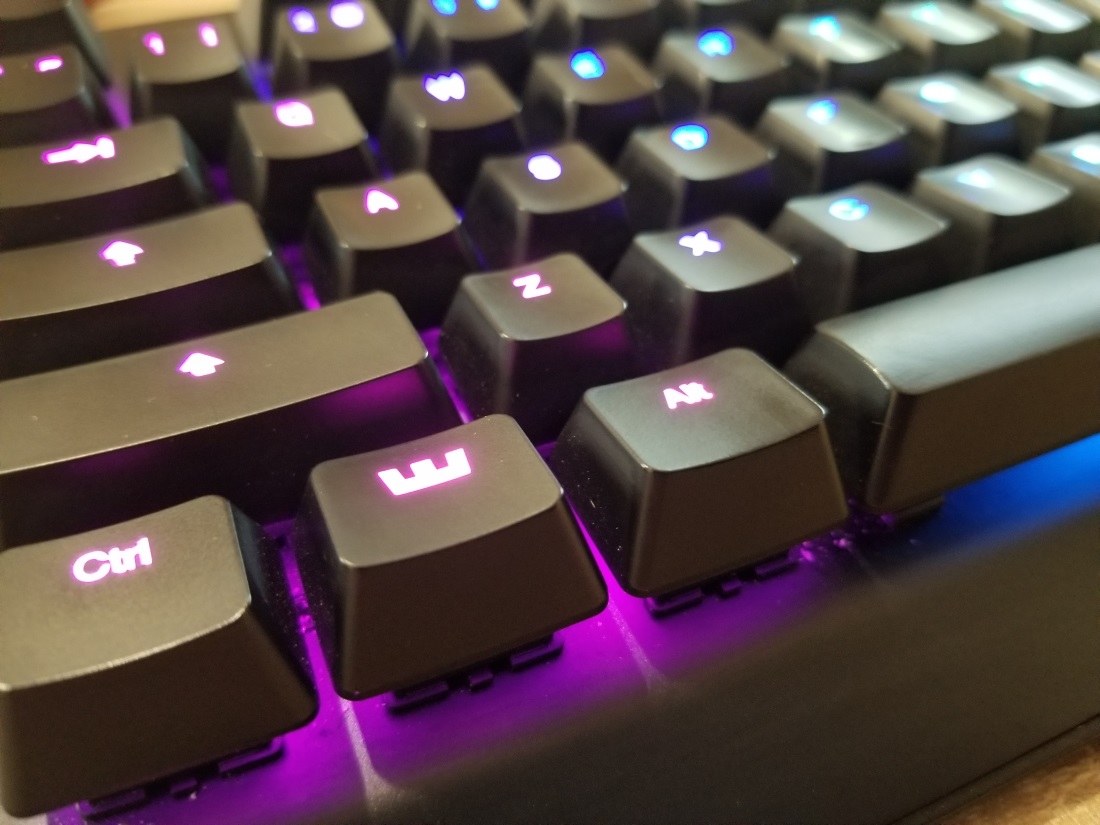
Personally, I opted for the Clicky55 "Blue" option, as I've always enjoyed the loud, clicky feedback other Cherry MX Blued keyboards emit. However, no matter which keyset you choose, the Wooting one is fully modular. Wooting claims users can swap out the device's keycaps, switches or top plate for other third-party alternatives if they so choose but I did not test this out for myself.
As far as typing goes, the Wooting one's keys feel about the same as any other high-end mechanical keyboard, such as Corsair's K70 or Razer's Blackwidow. I've never felt like I need to press down harder on the one's keys to, say, write a news article or chat with my friends on Discord than I would with any other keyboard.
"Wootility" customization software
The one's build quality and key switches aren't the only areas where the device excels. Its customization software, Wootility, is another high point of the overall Wooting experience. The software is attractive to look at and easy to navigate, primarily thanks to its simple design.
Wootility comes with four customizable keyboard profiles, three of which are "analog" profiles intended for gaming.
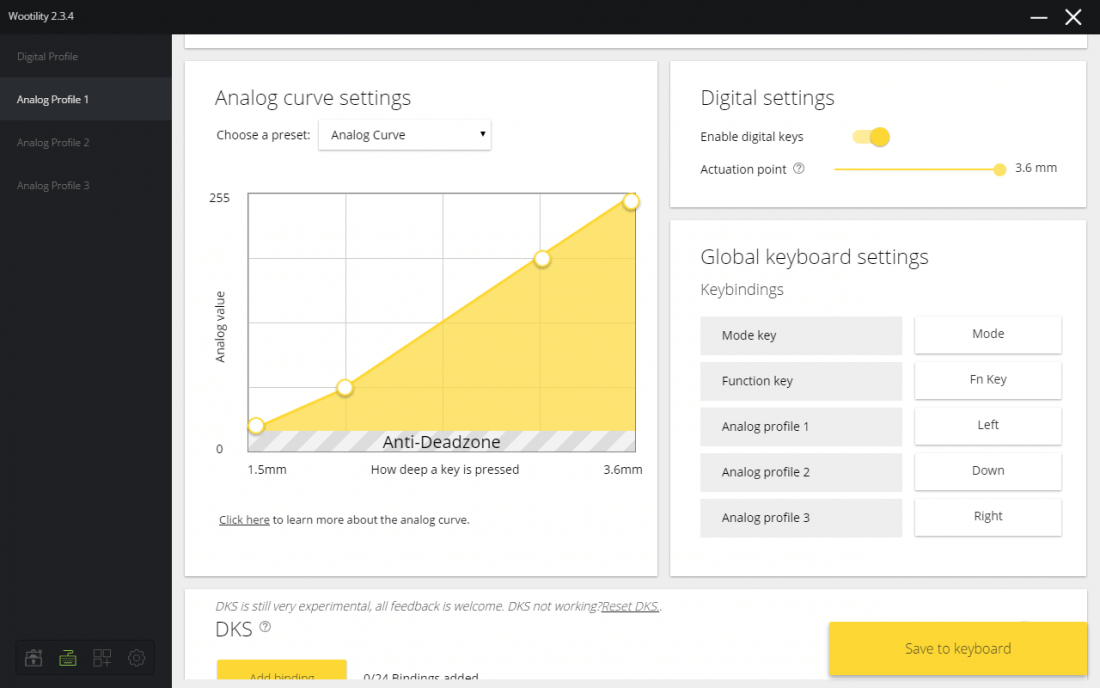
The final "digital" profile, on the other hand, effectively disables the one's analog tech, allowing for normal typing or web browsing.
Wootility allows you to customize everything from a given key's controller counterpart (you could bind WASD to four joystick directions, for example) to its actuation point (I recommend 2.6mm for most games) and actuation curve.
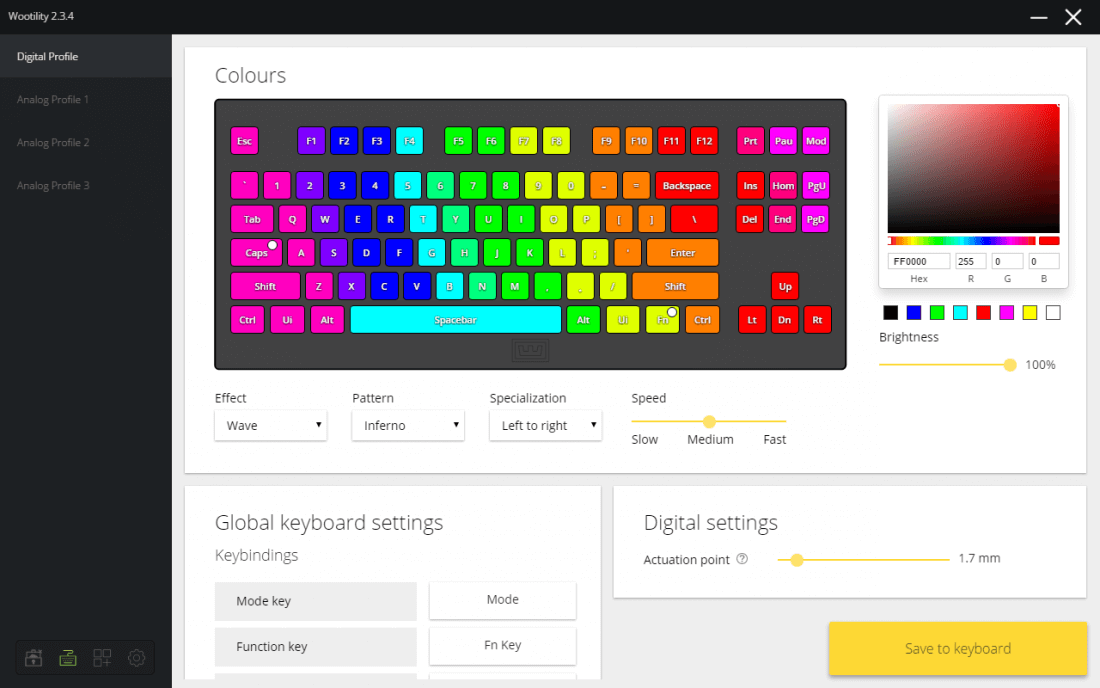
As I briefly mentioned earlier, Wootility also lets you adjust the one's lighting effects. When I first bought my device, I was limited to static, per-key RGB customization. It was fairly boring. Fortunately, a recent software update saved the day by bringing numerous lighting effects for users to play around with.
Effects include wave, rainbow, ripple, and far more. I'm not ashamed to admit that I've collectively spent hours toying around with these new options.
As much as I love the software, I do have one complaint about it. As of writing, it's not possible to remap your keys to other keys. You can only bind them to controller buttons, triggers or joystick movements. This seems like an oddly restrictive design choice that I'd like to see tweaked at a later date since plenty of other modern keyboard makers already offer this feature by default.
Closing Remarks
The Wooting one is an excellent device that is well worth its $150 price tag. It's not without issues, but the one's analog technology is impressive and effective, for the most part.
I'm still a bit frustrated that the device didn't work with some of my favorite single player games, but the fault mostly lies with lack of in-game support. Since analog keyboards (or controllers in general) are not a common standard in the PC platform, developers don't build support for the tech into their titles. That said, the device more than makes up for its shortcomings with its premium construction, above-average key switches, and easy-to-use customization software.
The Wooting community is also great. When I encountered issues while performing specific game tests with my keyboard, I merely stopped by the official Wooting Discord server and several community members were ready and willing to help.
If you want to give the device a try for yourself, you can pick it up through Amazon or directly from Wooting's site.
If tenkeyless keyboards aren't your thing, Wooting just recently launched a Kickstarter project for their upcoming Wooting two, which will include a full numpad (but will otherwise be functionally identical to the one).
Pros: Sturdy, quality build. Unique analog ability adds levels of pressure which works great in many titles. Double keystroke feature is another plus. Fully mechanical keyboard can rival top contenders. Great software, support and community.
Cons: Not all titles are ready to support analog keyboard input. Tenkeyless is not for everyone.
